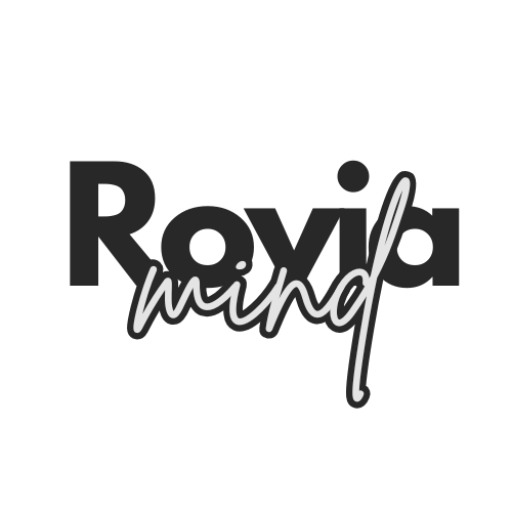Reading has always been a powerful tool for broadening our perspectives and unlocking new ways of thinking. Books that challenge our current views, enhance our cognitive abilities, and encourage self-reflection can be transformative. Whether you’re looking to improve your creativity, boost productivity, or simply deepen your understanding of the world, there are countless books that promise to expand your mind.
In this post, we’ll explore five of the best books that can help you achieve all of this and more. Plus, we’ll dive into activities, a handy chart, and how these books can directly impact your personal growth. Let’s dive in!
1. The Power of Now by Eckhart Tolle
“mindfulness books”
Eckhart Tolle’s The Power of Now is a groundbreaking book that focuses on the present moment. It teaches the importance of mindfulness in daily life, helping you detach from negative thinking patterns and stress. By learning how to live in the present, you can unlock greater mental clarity and peace.
Activity: Try this mindfulness exercise:
- Sit in a quiet room, close your eyes, and focus on your breath.
- As thoughts arise, acknowledge them, but gently bring your focus back to your breathing.
- Aim to practice this for 5 minutes daily, gradually increasing your time as you become more comfortable.

2. Thinking, Fast and Slow by Daniel Kahneman
“best psychology books”
Written by Nobel laureate Daniel Kahneman, Thinking, Fast and Slow delves into the two systems of thinking: the fast, intuitive system, and the slow, deliberate system. Understanding these systems can help you make better decisions and become more aware of cognitive biases that impact your judgment.
Chart: Two Systems of Thinking
| System | Description | Example |
|---|---|---|
| Fast Thinking | Quick, automatic, intuitive | Deciding to cross the street without overthinking |
| Slow Thinking | Deliberate, logical, analytical | Solving a complex math problem |
Activity: Start with this decision-making exercise:
- Choose a simple decision you need to make (e.g., which brand of toothpaste to buy).
- First, let your intuitive thinking guide you, then slow down and deliberate before making your final choice. Compare both processes to understand your preferences.
3. Atomic Habits by James Clear
“self-help books”
Atomic Habits is a practical guide on how to break bad habits and build good ones. James Clear explains the science behind habit formation and provides actionable steps to improve your life, one tiny habit at a time. The book’s key takeaway is that small, incremental changes compound over time to lead to remarkable personal transformation.
Activity: Create your own habit tracker:
- Write down one small habit you’d like to form (e.g., reading for 10 minutes every day).
- Track your progress each day for a week. Use a calendar or digital tool to mark each successful day.
- Reflect on how consistent small habits can lead to bigger changes over time.
4. Sapiens: A Brief History of Humankind by Yuval Noah Harari
“history books”
Yuval Noah Harari’s Sapiens offers a fascinating look at the history of human evolution, examining how we went from primitive beings to the complex societies we are today. This book challenges our understanding of the past and invites you to reflect on how history shapes our present-day lives.
Activity: Reflective writing prompt:
- After reading a chapter, take 10 minutes to write down your thoughts.
- Focus on how Harari’s insights on human behavior or history connect to your own life or society today.
- This exercise can help deepen your understanding of the material and spark new perspectives.
5. Man’s Search for Meaning by Viktor E. Frankl
“self-improvement books”
Viktor Frankl’s Man’s Search for Meaning is an introspective account of his experiences as a Holocaust survivor and his psychological journey towards finding purpose in life. Frankl explores how meaning can be found even in the most difficult circumstances, offering timeless wisdom on overcoming adversity.
Activity: Write your own “meaning statement”:
- Reflect on what gives your life meaning.
- Write down the core values or goals that shape your life’s purpose.
- Revisit this statement whenever you face challenges to stay focused on your deeper motivations.

6. The Four Agreements by Don Miguel Ruiz
“personal growth books”
The Four Agreements by Don Miguel Ruiz presents a simple but profound code of conduct based on ancient Toltec wisdom. This book teaches you four principles that can help transform your life by freeing you from the constraints of fear, self-doubt, and limiting beliefs. It challenges you to embrace personal integrity, practice self-awareness, and let go of societal expectations that may have shaped your life.
The Four Agreements are:
- Be Impeccable with Your Word: Speak with integrity and say only what you mean.
- Don’t Take Anything Personally: Nothing others do is because of you; it’s a reflection of their own reality.
- Don’t Make Assumptions: Find the courage to ask questions and express what you really want.
- Always Do Your Best: Under any circumstance, always do your best, no more, no less.
Activity: Implement the Four Agreements in Daily Life:
- Pick one of the Four Agreements to focus on this week. For example, if you choose “Don’t Take Anything Personally,” start noticing when you feel upset by something someone else says. Ask yourself if it’s truly about you or if it’s a reflection of the other person’s mindset.
- Write down your experiences and reflect on how it changes your interactions and self-perception.
7. The Art of Happiness by Dalai Lama and Howard Cutler
“happiness books”
In The Art of Happiness, the Dalai Lama shares his philosophy on the key to living a joyful and meaningful life. His teachings focus on compassion, mindfulness, and the belief that happiness is a skill that can be cultivated. With the right mindset and perspective, we can reframe challenges as opportunities for growth and self-improvement. This book is a guide to developing inner peace, managing negative emotions, and discovering the lasting happiness that comes from within.
Activity: Daily Gratitude Practice:
- Start each day by writing down three things you’re grateful for. This simple practice has been shown to enhance happiness and foster a positive mindset.
- As you do this, try to be as specific as possible, acknowledging even the small moments that bring you joy.

Conclusion: Expanding Your Mind with Books
These books are more than just informative reads; they are opportunities for deep self-reflection and growth. Whether you’re looking to improve your decision-making, cultivate new habits, or explore the depths of human history, each of these books offers a unique perspective that can help you expand your mind. Start reading today and make your journey toward personal development even more rewarding!
At Mindrovia, we believe in the power of self-improvement and the importance of knowledge. These books are just a few of the many that can help you achieve your goals, and we encourage you to explore even more as you continue your journey of learning.




Leave a Reply